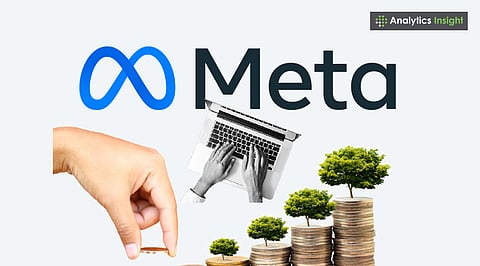

What’s New Today: Meta stated its intention to acquire the chip startup Rivos to boost its in-house semiconductor efforts.
Fast-Track Insights: A London-based startup ZERØTEC has announced a £642,000 pre-seed funding round led by Bethnal Green Ventures to control wastage in the fashion industry.
Here’s a quick rundown of the biggest tech headlines making waves today. Let's dive into the day's top tech stories, from Meta’s Rivos acquisition plans to the announcement of Ripple CEO’s stepping down.
Meta plans to acquire chip startup Rivos, which designs processors around the open-source RISC-V architecture, to further boost in-house semiconductor capabilities. Rivos, a full-stack AI chip design company, is backed by Intel CEO Lip-Bu Tan. Meta is an existing Rivos customer and believes this acquisition will speed up the development of their own MTIA custom accelerators and allow for less dependence on third-party suppliers.
London-based start-up ZERØTEC has raised £642,000 through pre-seed funding led by Bethnal Green Ventures to sift through the fashion industry caught in annual fabric-waste of $300 billion. The AI-based platform optimizes pattern design and cutting, thereby reducing material loss by up to 15%. Over 250 brands are now testing the technology. These funds will be utilized for scaling, further R&D, and market entry into EMEA and MENA.
Positions are available at GAIL for Executive Trainees in Chemical, Electrical, Mechanical, and Instrument in GATE 2026. The applicant must have a BE/B.Tech degree with at least 65% marks, or 60% in the case of reserved categories. The maximum age will be 26 years, with usual relaxation permitted. Applications will be accepted from 17 February till 18 March 2026 and must be submitted online. The selection procedure includes shortlisting on the basis of GATE score followed by a group discussion/interview.
Artificial intelligence is increasingly shaping financial services: from assisting in efficient trade, lending, and fraud detection. However, using AI has plenty of ethical issues: a lack of transparency in algorithmic decision-making, potential reinforcement of existing biases, or simply unclear accountability for errors or losses. It's important to uphold fairness, liability, and oversight. Therefore, a regulatory framework combining a robust supervisory authority could be a good trade-off between innovation and trust. In that sense, AI will only be a responsible tool in managing financial infrastructure.
Ripple's Chief Technology Officer, David Schwartz, as per the announcement, will leave his executive role at the end of 2025 after more than ten years with the company. A founder figure for the development of the XRP Ledger, Schwartz has expressed the desire to spend more time with family members and foster several personal interests. He will still hold the title of CTO Emeritus and will also join the Board of Directors of Ripple, ensuring that he remains an active part of the company's strategic direction.
